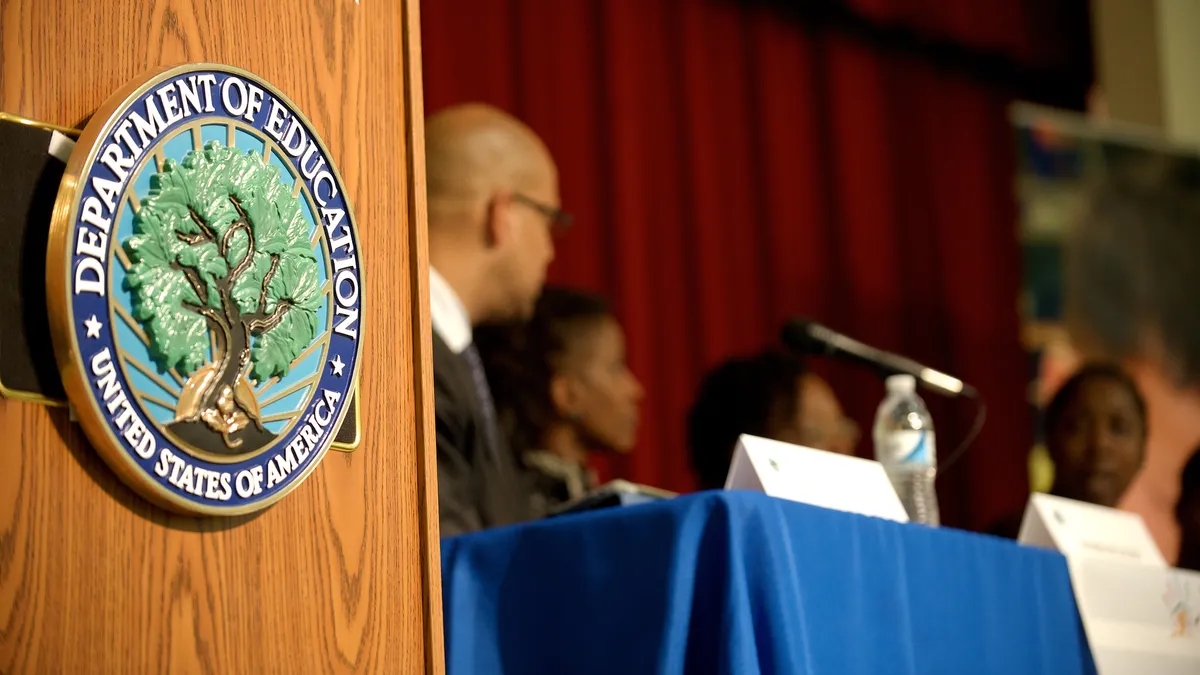College career programs will once again need to prove they won’t burden students with overwhelming debt, under a highly anticipated regulation that the U.S. Department of Education unveiled Wednesday.
The Biden administration released a draft version of what’s called the gainful employment rule in May. The plan aims to ensure students who spend significant time and money in proprietary programs reap benefits, like a sound job.
These career programs must demonstrate that their graduates earn more than the student loan debt they’ve incurred. Graduates can pay no more than 8% of their annual earnings toward debt, or no more than 20% of the earnings that the department considers discretionary, under the rule.
Colleges that flunk this debt-to-earnings test could lose access to federal aid, without which they likely can’t operate.
However, the for-profit sector is arguing the rule unfairly targets those institutions. It made those same complaints about the original gainful employment rule issued by the Obama administration in 2014, which the Trump White House rescinded five years later.
“Once again, the Department has rushed the process, overlooking critical issues, to hastily implement and weaponize a final Gainful Employment rule against for-profit institutions,” Jason Altmire, president and CEO of a group representing for-profits, Career Education Colleges and Universities, said in a statement Wednesday.
“The Department continues to put its thumb on the scale to circumvent established procedures and advance a partisan rule that fails to protect the vast majority of students,” Altmire said.
What does the rule do?
The final rule, which takes effect July 1, 2024, also dictates that for-profit colleges pass an “earnings premium test,” essentially judging whether at least half of their graduates have earnings higher than someone with just a high school diploma in their state.
Institutions that fail either this test or the debt-to-earnings ratio twice in a three-year period will lose access to federal aid.
“We are fixing a broken system and making sure that students know, before they take out loans, when college programs have a history of leaving graduates with high debts, low earnings, and poor career prospects,” U.S. Education Secretary Miguel Cardona said in a statement Wednesday.
The rule also contains provisions that the Biden administration said will result in prospective college students and their families getting the “most detailed information ever available about what they are likely to pay out-of-pocket for programs.”
Under the new policy, all colleges — even public institutions and private nonprofits — will need to disclose data such as tuition costs and other expenses, as well as the amount graduates typically have borrowed. The Education Department will publish this data online.
Prospective students also will need to acknowledge, per the rule, the risks of enrolling in a career program that could leave them saddled with debt.
A recent analysis by left-aligned think tank The Century Foundation found the draft version of the gainful employment rule would "direct students to programs that produce higher earnings and lower debt burdens.”
Researchers estimated that students who would transfer out of failing programs and into more successful ones would see their annual earnings rise by 45% — from $21,600 to $31,500 on average.
The Education Department said Wednesday that the new rule will protect about 700,000 students who would otherwise have enrolled in almost 1,700 low-performing programs.















